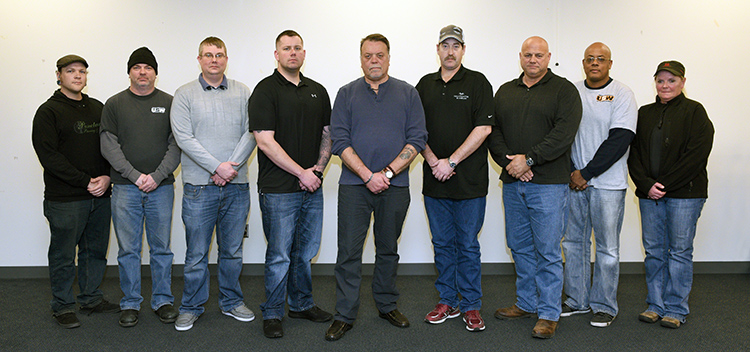With National Oil Bargaining Program (NOBP) talks set to begin next year, the NOBP Policy Committee members and alternates met in Pittsburgh in mid-December to plan mobilization activities in preparation for negotiations.
The NOBP pattern agreement will expire Feb. 1, 2019 at 12:01 a.m., and it covers wages, benefits and working conditions, like health and safety.
“I want members to start thinking seriously about bargaining and what they would like to see in the national agreement and local contracts,” said NOBP Chair Kim Nibarger.
He also wants to see how well the locals and units are implementing the provisions of the current pattern agreement regarding contractors and fatigue; how they are communicating with their members; and which committees or groups they participate in, such as a union-only health and safety committee and Next Gen.
To this end, Nibarger gave each policy committee member and alternate a tablet and told them to contact the locals and units in their region to ask them questions from a survey the union developed.
The survey contains questions such as the number of contractors at each facility; whether or not a plan to hire daily maintenance workers has been developed with management and the number hired; whether or not they are conducting staffing level reviews every six months and getting the needed data from management, and whether or not they are sending this information to his office.
“This information will help us develop background for the areas we need to concentrate on during bargaining with the industry,” Nibarger said.
New Committee
After the 143-day unfair labor practice strike at selective refineries and petrochemical plants in 2015, many members of the policy committee retired. During the 2016 NOBP conference, delegates elected new committee members and alternates to serve through the next round of negotiations.

Since many had not experienced bargaining as a policy committee member or alternate, they heard at the meeting a history of the NOBP, learned the gains progressively made over time, and received an explanation of why oil bargaining is handled differently from other industries.
Nibarger said the new members and alternates actively participated in the meeting, shared ideas, gave him good feedback and were excited about upcoming bargaining.
They laid out a mobilization schedule, with activities starting in July.
Meanwhile, Nibarger hopes the union’s industry councils will meet before the next NOBP conference—although no date has been set yet, it will be sometime in September— to discuss bargaining policies.
“We geared up the company councils these past few years to make them more active,” he said. “We need them to stick together on bargaining issues.”
PHOTO: Steve Dietz, www.unionpix.com
